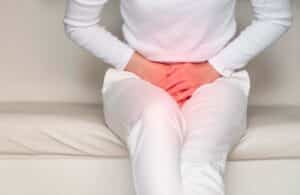
At Craig Ranch OB/GYN in McKinney, TX, our caring team has provided high-quality OB/GYN care since 2000, guiding women with compassionate, patient-centered support through every stage of life.
We understand that menopause can bring about challenging symptoms, including urinary incontinence, which can affect your quality of life. Our specialists help you manage these changes and restore your wellness.
Many of our patients ask us why they’re suddenly experiencing urinary incontinence as they start menopause, so we decided to dedicate this month’s blog to the “why” behind those frustrating urinary issues.
How Does Menopause Affect Urinary Control?
Menopause causes changes throughout the body, mainly spurred by a decrease in estrogen levels. As estrogen declines, the muscles and other tissues in the pelvic region—including those surrounding your bladder—weaken.
That, in turn, leads to reduced bladder control and support. Many women in menopause experience:
- Stress Incontinence: Leakage when coughing, sneezing, or laughing due to pressure on weak pelvic floor muscles.
- Urge Incontinence: A sudden, overwhelming need to urinate, sometimes before reaching a bathroom.
- Mixed Incontinence: A blend of stress and urge incontinence.
For many women, urinary incontinence symptoms start suddenly during perimenopause (the menopause transition). Other women may begin struggling with urinary incontinence earlier in life, for example, during and after pregnancy, and then experience symptoms worsening during menopause.
Managing Urinary Incontinence During Menopause
Our caring team may recommend several approaches to managing menopause-induced urinary incontinence:
- Pelvic Floor Exercises: Strengthening exercises like Kegels can improve bladder control.
- Bladder Training: Regular bathroom schedules help reduce the frequency of sudden urges.
- Hydration Awareness: Drink enough water but limit caffeine and alcohol, as they irritate the bladder.
If these methods don’t provide enough relief, our specialists can discuss other treatment options tailored to your needs, including medications and advanced therapies such as Viveve®.
Menopause and Urinary Incontinence Help in McKinney, TX
For help managing urinary incontinence during menopause, you can rely on our compassionate specialists. Call Craig Ranch OB/GYN at 214-544-6600 to schedule your appointment and learn how we can help you.
